The tenth Ukrainian-German professional meeting on constitutional law
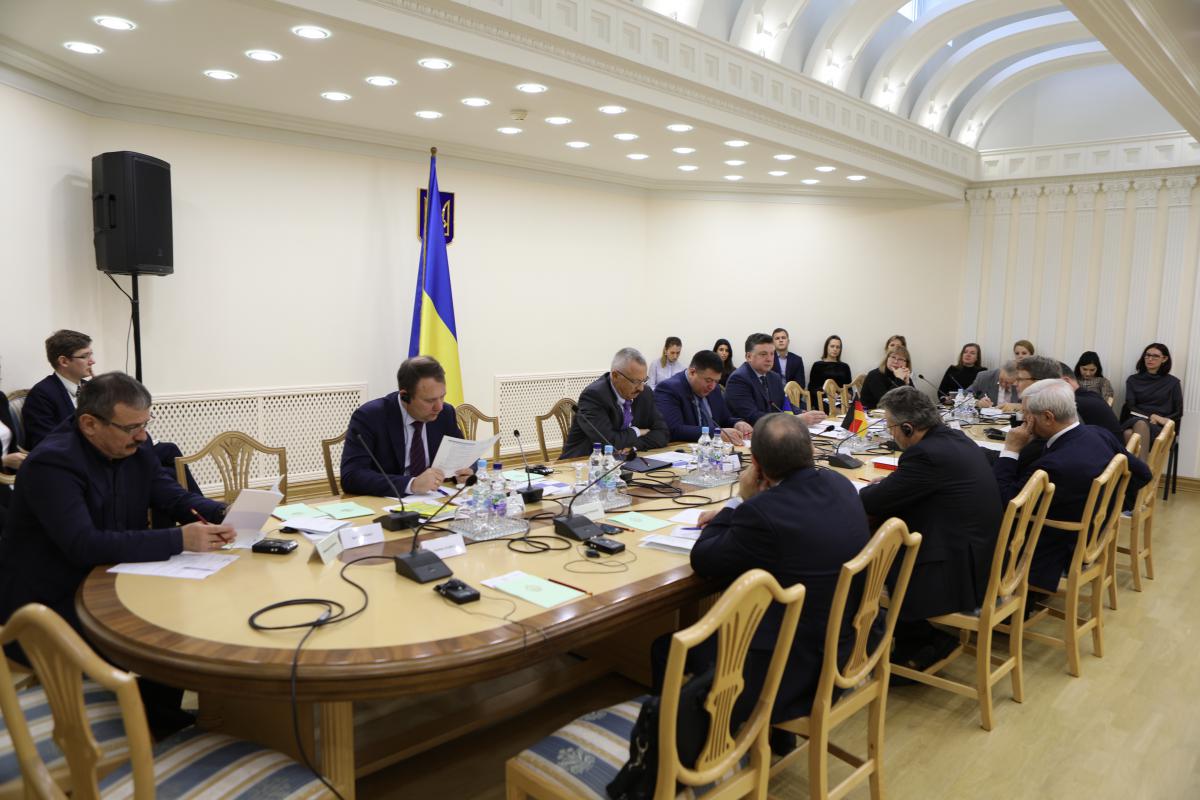 On November 4-5, 2019 the Constitutional Court of Ukraine hosted the tenth Ukrainian-German professional meeting on constitutional law.
On November 4-5, 2019 the Constitutional Court of Ukraine hosted the tenth Ukrainian-German professional meeting on constitutional law.
Chairman of the Constitutional Court of Ukraine Oleksandr Tupytskyi, Deputy Chairman of the Constitutional Court of Ukraine Serhii Holovaty, Judges of the Constitutional Court of Ukraine Viktor Horodovenko, Oleksandr Kasminin, Viktor Kolisnyk, Vasyl Lemak, Oleh Pervomaiskyi, Ihor Slidenko, as well as the Head of the Consular Section of the Embassy of the Federal Republic of Germany in Ukraine Jens Kraus-Massé, Director of the German Foundation for International Legal Cooperation (IRZ) Stefan Hülshörter, IRZ Senior Project Manager Wolfram Hertig, former Judge of the Federal Constitutional Court of Germany Udo Steiner, Senior Researcher at the Max Planck Institute for Comparative Public Law and International Law Matthias Hartwig, Legal Advisor at the IRZ Office in Ukraine Hennadii Ryzhkov were the participants of the meeting.
During the two-day event, participants analysed common issues of constitutional proceedings, including on constitutional complaints.
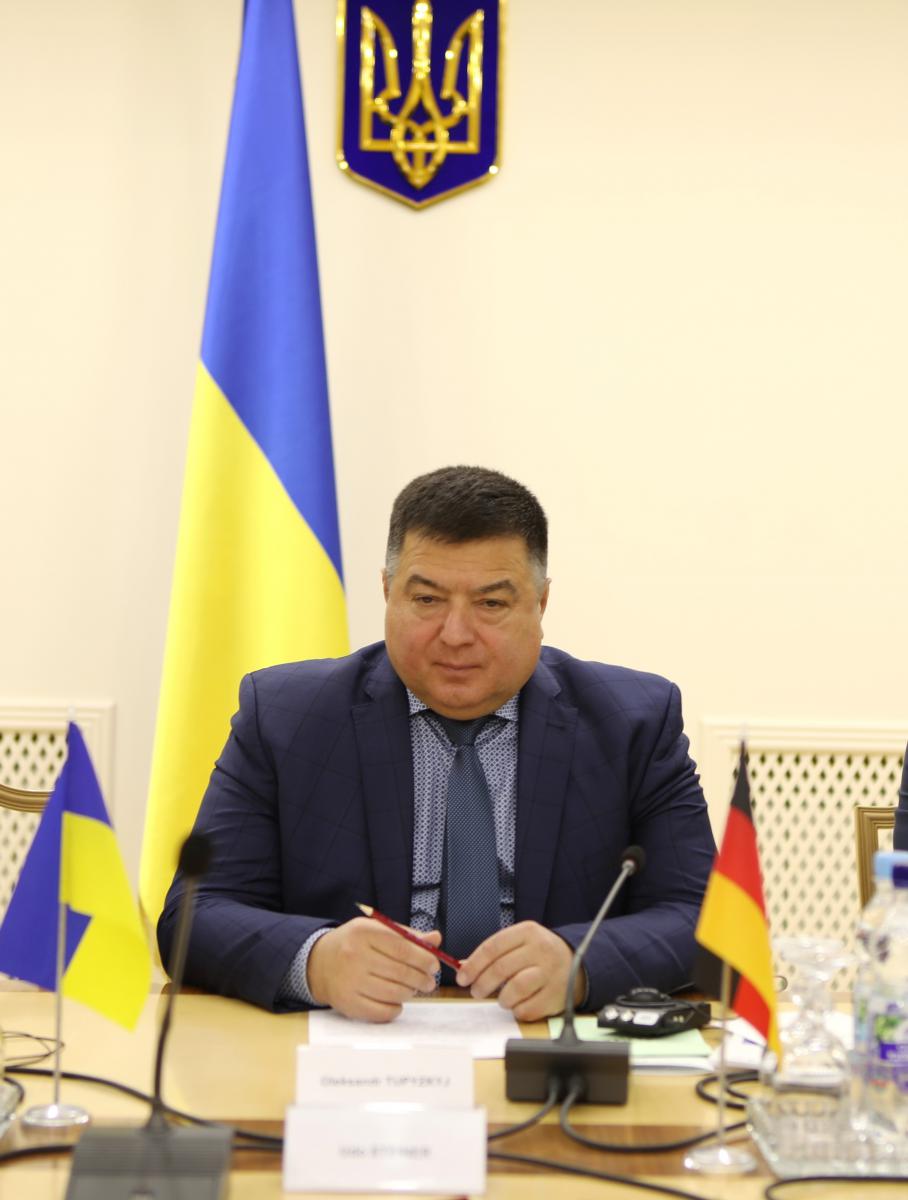 Chairman of the Constitutional Court of Ukraine Oleksandr Tupytskyi addressed the participants with the opening speech and noted that cooperation between the Constitutional Court of Ukraine and the German Foundation for International Legal Cooperation started in November 1996: “Since then, such meetings have become a good tradition, allowing us to deepen our cooperation, share experiences and find effective ways to solve problematic issues".
Chairman of the Constitutional Court of Ukraine Oleksandr Tupytskyi addressed the participants with the opening speech and noted that cooperation between the Constitutional Court of Ukraine and the German Foundation for International Legal Cooperation started in November 1996: “Since then, such meetings have become a good tradition, allowing us to deepen our cooperation, share experiences and find effective ways to solve problematic issues".
Oleksandr Tupytskyi noted that in the course of the activity of the bodies of constitutional justice there are sometimes issues that require careful study and professional discussion, so this meeting is a good opportunity to work out algorithms for solving the constitutional and legal problems. He also wished the participants fruitful discussion and productive work.
The Head of the Consular Section of the Embassy of the Federal Republic of Germany in Ukraine Jens Kraus-Massé noted the relevance of the issues raised for discussion. According to him, holding professional meetings on constitutional law is very important as it facilitates the exchange of best practices. "The exchange of legal experience between the bodies of the constitutional jurisdiction of both countries is extremely important and helps to ensure that Ukraine is moving towards European integration," said the Head of the Consular Section of the Embassy of Germany in Ukraine.
According to the Senior Project Manager of the German Foundation for International Legal Cooperation Wolfram Hertig, long-standing cooperation between the German Foundation of International Legal Cooperation and the Constitutional Court of Ukraine is permanent and effective. He stressed the importance of the issues discussed by the participants of the 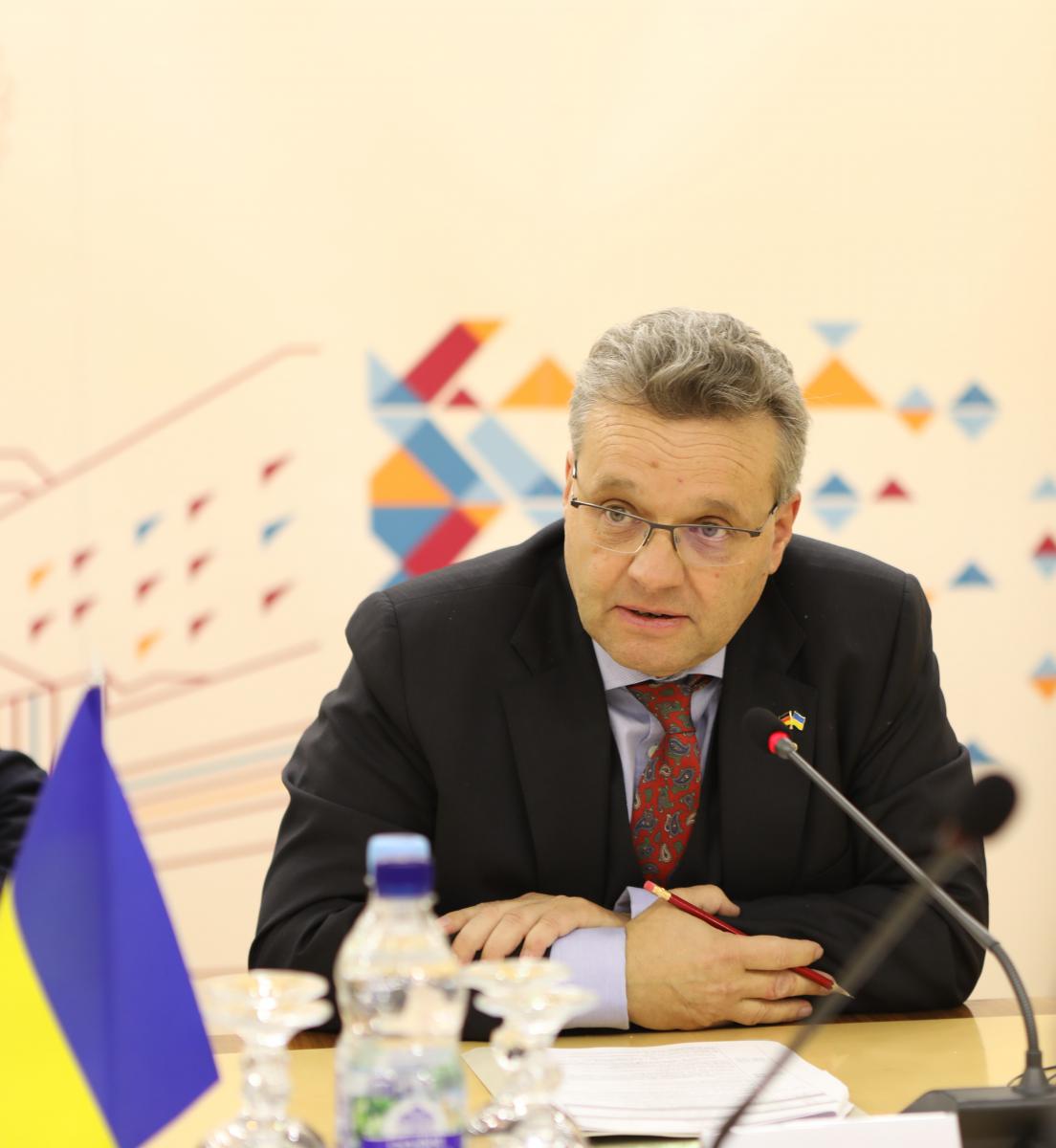 tenth Ukrainian-German professional meeting, and wished the participants a fruitful discussion.
tenth Ukrainian-German professional meeting, and wished the participants a fruitful discussion.
The first session, moderated by the judge of the Constitutional Court of Ukraine Viktor Horodovenko, concerned general issues of constitutional procedure.
The participants analysed the possibilities for the constitutional court to use the principle of "obiter dictum" in the reasoning part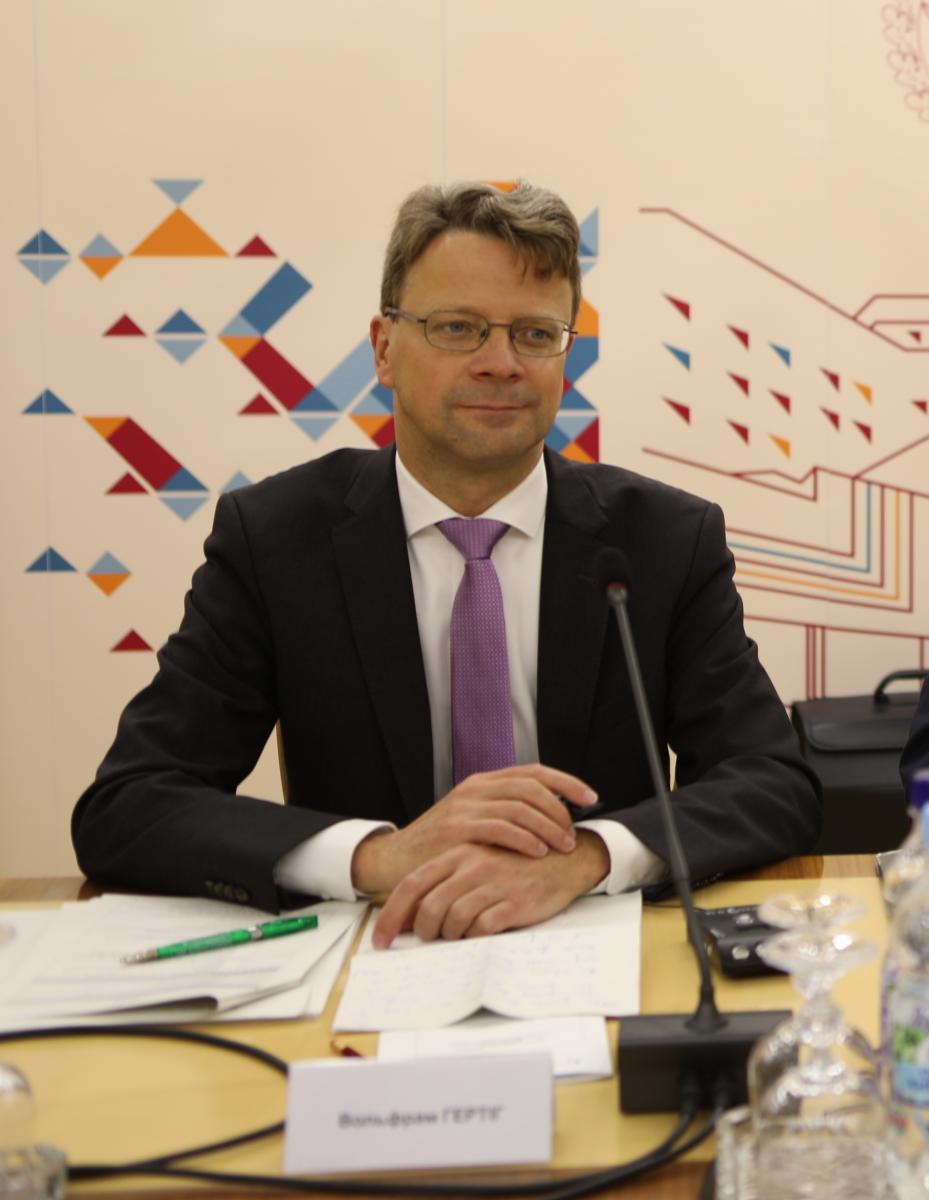 of the decision and the question of the extent to which the decision of the constitutional court could go beyond the case being resolved.
of the decision and the question of the extent to which the decision of the constitutional court could go beyond the case being resolved.
The second session moderated by Senior Researcher at the Max Planck Institute for Comparative Public Law and International Law Matthias Hartwig concerned the possibility to revoke appeal to the constitutional court upon written submission of the subject of application regardless of the form of such appeal.
During the next session moderated by the judge of the Constitutional Court of Ukraine Oleh Pervomaiskyi the participants dwelt upon explanations of the adopted acts of constitutional courts as well as possibilities and practice of reimbursement of the damage caused to individuals and legal entities by acts and actions declared unconstitutional.
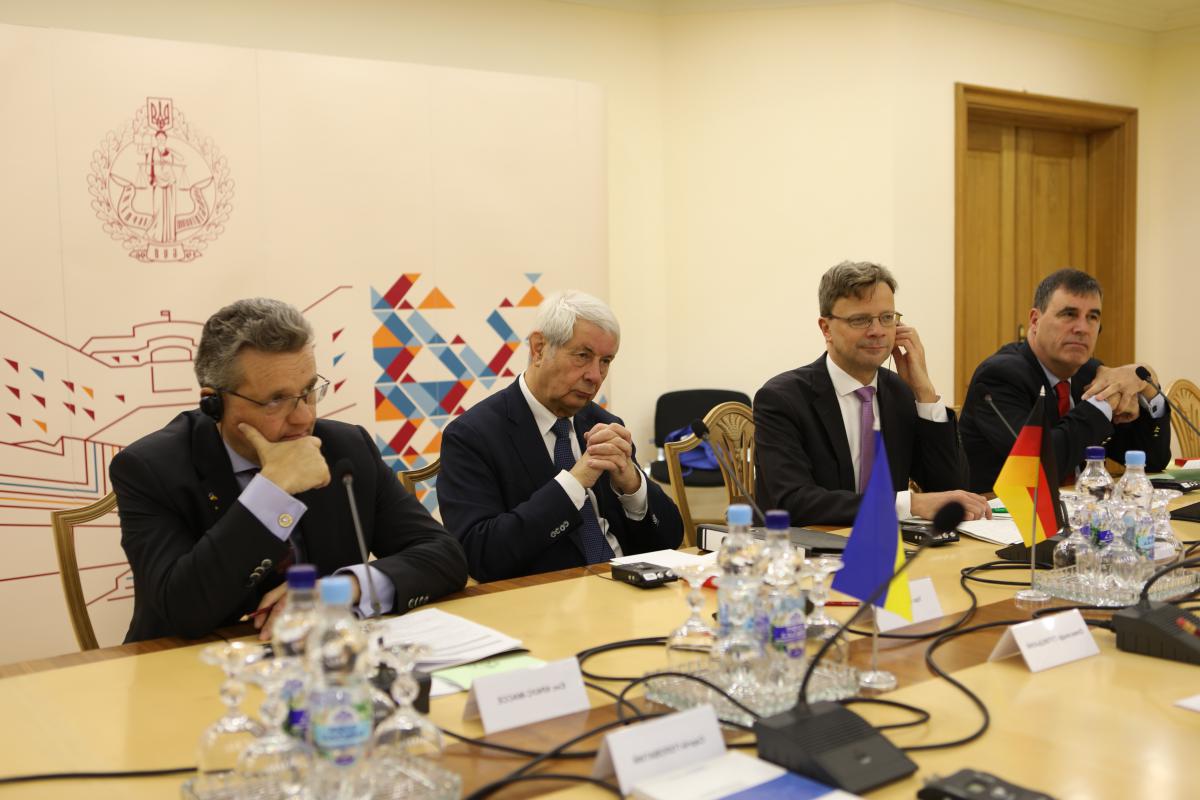 The fourth session was focused on the constitutional proceedings upon constitutional complaints and was moderated by IRZ Senior Project Manager Wolfram Hertig. The participants analysed in detail the criteria and application of the possibilities of preliminary legal protection in the framework of submission and during consideration of the constitutional complaint, in particular the institute of interim order. Methods of avoiding irreversible consequences, possibilities for admissibility of a formally inadmissible constitutional complaint due to the social interest as well as possibilities and specificities to lodge a “collective” constitutional complaint were also covered during this session.
The fourth session was focused on the constitutional proceedings upon constitutional complaints and was moderated by IRZ Senior Project Manager Wolfram Hertig. The participants analysed in detail the criteria and application of the possibilities of preliminary legal protection in the framework of submission and during consideration of the constitutional complaint, in particular the institute of interim order. Methods of avoiding irreversible consequences, possibilities for admissibility of a formally inadmissible constitutional complaint due to the social interest as well as possibilities and specificities to lodge a “collective” constitutional complaint were also covered during this session.
The second day of the meeting was devoted to constitutional proceedings upon constitutional complaints. The participants of the session moderated by the judge of the Constitutional Court of Ukraine Viktor Kolisnyk focused on the possibilities of 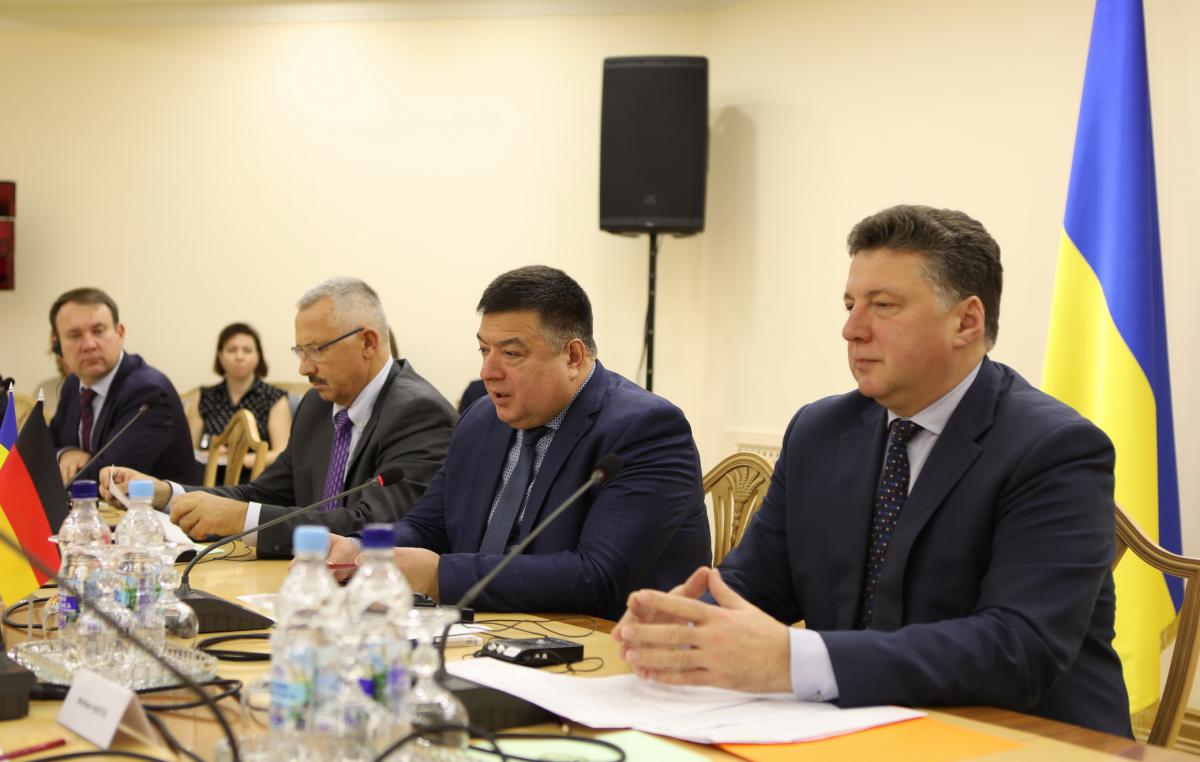 constitutional courts to declare a legal norm as such that conforms to the Constitution with simultaneous declaration that it was understood or interpreted incorrectly. Methods to ensure the conformity of the constitutional court jurisprudence when considering and adopting decision upon constitutional complaints by collegia, senates and the whole composition of the constitutional court were analysed.
constitutional courts to declare a legal norm as such that conforms to the Constitution with simultaneous declaration that it was understood or interpreted incorrectly. Methods to ensure the conformity of the constitutional court jurisprudence when considering and adopting decision upon constitutional complaints by collegia, senates and the whole composition of the constitutional court were analysed.
In conclusion, the participants summed up and discussed topics for future meetings.
Judges of the Constitutional Court of Ukraine Serhii Holovaty, Viktor Horodovenko, Viktor Kolisnyk, Vasyl Lemak, Oleh Pervomaiskyi, Ihor Slidenko, former Judge of the Federal Constitutional Court of Germany Udo Steiner, Senior Researcher at the Max Planck Institute for Comparative Public Law and International Law Matthias Hartwig participated in the discussion of the issues above.

